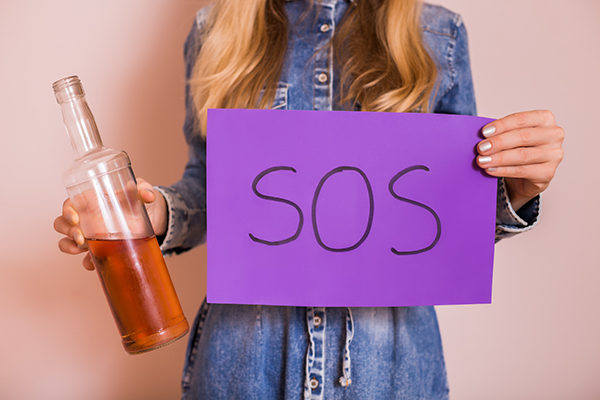Alcoholism or alcohol use disorder is a chronic disease that is characterized by uncontrolled drinking and a preoccupation with alcohol. It is also characterized by the inability to control drinking due to both a physical and emotional dependence on alcohol. Alcohol use disorder is considered a brain disorder and has three levels: mild, moderate, and severe. The National Institute on Alcohol Abuse and Alcoholism says the following:
Lasting changes in the brain caused by alcohol misuse perpetuate AUD and make individuals vulnerable to relapse. According to a national survey, 14.1 million adults ages 18 and older (5.6 percent of this age group) had AUD in 2019. Among youth, an estimated 414,000 adolescents ages 12–17 (1.7 percent of this age group) had AUD during this timeframe. A person’s risk for developing AUD depends, in part, on how much, how often, and how quickly they consume alcohol. Drinking excessively, which includes binge drinking and heavy alcohol use, over time increases the risk of AUD.
Genetics, mental health disorders, and drinking at an early age also increase the risk of developing alcoholism. Once a person has become physically dependent on alcohol, detox should be done in a medically supervised treatment environment. Trying to detox off of alcohol without medical supervision is very dangerous. Withdrawal from alcohol can cause the body to experience dangerous seizure activity. In a hospital environment, the individual can be monitored and given medications to get through the withdrawal process safely.
Approaching a Loved One with Alcoholism
Helping a loved one with alcoholism can be difficult, but there are things you can do to help. Treating alcoholism isn’t easy and relapses are very common. The alcoholic has to want help before anything can be done. If they are resistant to getting help, trying to force them into treatment isn’t going to work. The best thing you can do is to not enable them, do not drink around them, and do not become codependent. Be empathetic and open to help them when they are ready. This is an ongoing process and can take time, make sure you are taking good care of yourself. Learn about alcoholism or AUD (alcohol use disorder) – The very first thing to do is to recognize the signs and symptoms and learn everything you can about alcoholism and get support yourself. Alcoholism is more than just your loved one drinking too much occasionally. More than likely there is a reason why they have continued to drink. They may be suffering from an untreated mental illness and are using alcohol to self-medicate. Once an alcoholic gets to a certain point with their drinking, they cannot just stop without having dangerous withdrawal symptoms including seizure activity that can be deadly. There are several support groups and programs available to families and friends of someone with AUD. Alcoholics Anonymous or AA and Al-Anon are good places to start. There are also resources available online like the National Institute on Alcohol Abuse and Alcoholism.
- Go over what you are going to say – Practice what you are going to say to them. Do not accuse them and avoid being negative or making hurtful statements. That will only make things worse.
- Pick the right place and time – It is probably best to approach them when they are either not drinking or have had very little to drink. For someone that has severe AUD, it is important to know that they will always have to have alcohol in their bloodstream to prevent dangerous seizures from occurring. Make sure they have your full attention and can understand what you are saying to them.
- Approach them with your concerns in a caring way – Be open and honest with them about your concerns. Don’t threaten them, make any accusations, be negative, or make excuses for them and their behavior. Be compassionate, non-judgmental, and try to be understanding of what they are going through.
- Offer your support and encourage them to get help – Offer to help them. Let them know you will be there every step of the way and will take them to get help. Develop a plan and follow through. Do not enable this person. You can be there to help and support them without enabling them. Agree to go to AA or 12-step meetings with them as well.
- Intervene – Staging an intervention would be the very last thing you should do if all else fails, and they won’t agree to get help. The alcoholic may feel like they are being ganged up on during an intervention, and interventions do require a group of friends and family to get involved along with a therapist. However, getting a therapist involved could help advise the family, explain treatment options, and they can help find programs in your area.
Treatment for Alcohol Dependence
If you or someone you love is struggling with an addiction, our addiction specialists are available around the clock to assist you. Evoke Wellness at Cohasset offers evidence-based addiction treatment. Our solution-focused addiction treatment will lead you on a road to long-lasting recovery. You don’t have to suffer any longer, call us today for information on our professional alcoholism treatment programs.




